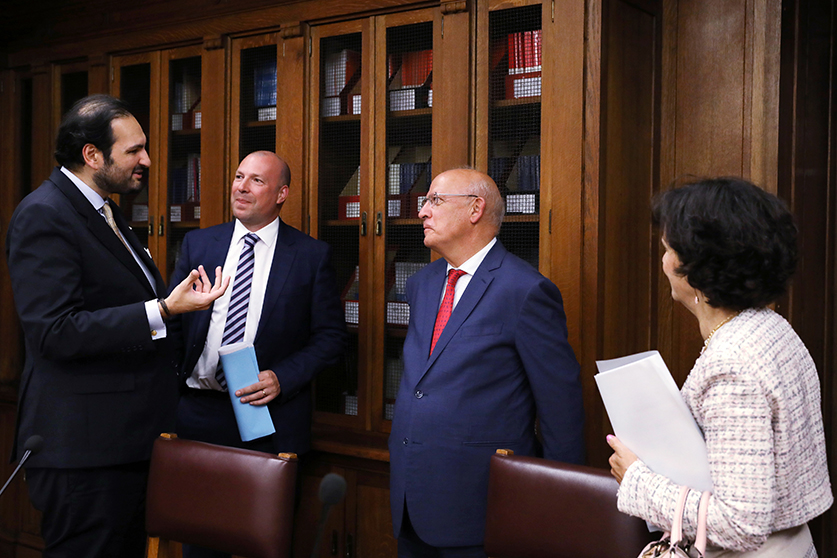The Secretary General of AIDLR participates in the colloquium "Religious freedom and freedom of expression" organised by the Assembly of the Portuguese Republic.
26 September 2023
The relationship between Freedom of Expression and Freedom of Religion is a current, pertinent, sometimes worrying, but inexhaustible topic. How can these two fundamental rights coexist and maintain the delicate balance between protecting individual rights and respecting religious diversity?
It was in an attempt to reflect on these questions that the President of the Assembly of the Republic, Prof. Augusto Santos Silva, organized and promoted the second of three colloquia on the theme of Religious Freedom, this time on the relationship between "Religious Freedom and Freedom of Expression", at the Passos Manuel Library, in the Assembly of the Republic, on September 21.
Moderating the debate was the Vice-President of the Assembly of the Republic, Edite Estrela, who highlighted the "Right to Freedom of Expression as one of the first achievements of April (...) without Freedom of Expression, there is no Religious Freedom."
Ana Maria Guerra Martins, Judge at the European Court of Human Rights, explained that in order to understand the dimension of human rights protection, it is necessary to understand the complexity of all the levels of regulation and international standards that protect this type of rights. "Since 1993, the European Court of Human Rights has received more than 800 complaints. And more than 150 decisions and judgments have been handed down, either on the relationship between Freedom of Religion and Freedom of Expression, or on Freedom of Religion alone."
The judge used the example of the Manoussakis v. Greece and Ivanova v. Bulgaria cases to explain that the European Court of Human Rights has made decisions to make states respect a principle of neutrality, and that it is not up to them to define which beliefs are official.
For Ana Maria Martins, states should not only be neutral, but should take all measures to ensure that religions can operate freely on their territory. On the other hand, the European Court of Human Rights has ruled to prevent states from intervening in internal conflicts over religious beliefs.
Professor Teresa Toldy, a theologian and researcher, also took part in this colloquium. In her presentation, she highlighted the problem of the invisibilization of people who profess a religion. She also warned of the danger that freedom of religion and freedom of expression can sometimes be used as an "exclusion kit".
Commentators included Reverend Abilene Fischer, from the Lusitanian Church, Anglican Communion, and Paulo Sérgio Macedo, secretary-general of the AIDLR, member of the IRLA Expert Advisory Committee and of the European Platform against European Intolerance and Religious Discrimination.
Paulo Sérgio Macedo highlighted the "celebration of the 75th anniversary of the Universal Declaration of Human Rights, completed this year, for bringing about a change in what the Rights of Religious Freedom and Freedom of Expression are, in a shift from the defense of minorities to the defense of Individual Rights". For him, in this debate, the "limits of Freedom of Expression on Religion should be personal defamation, the insult of believers and their beliefs and the threat of violence."
In his final reflection, Paulo Macedo referred to the cases of Päivi Räsänen and Olaf Latzel, concluding that "although proselytism is currently protected, i.e. what religions say about each other or about themselves, social agents may nevertheless be less prepared to listen to what religions say about society."
The initiatives on Religious Freedom in the Portuguese Parliament will continue, with the inauguration of an exhibition on Religious Freedom in Portugal planned for next December.
Paulo Macedo
Secretary-General
· Photos of the event availables here.
· More info (in Portuguese) here.
